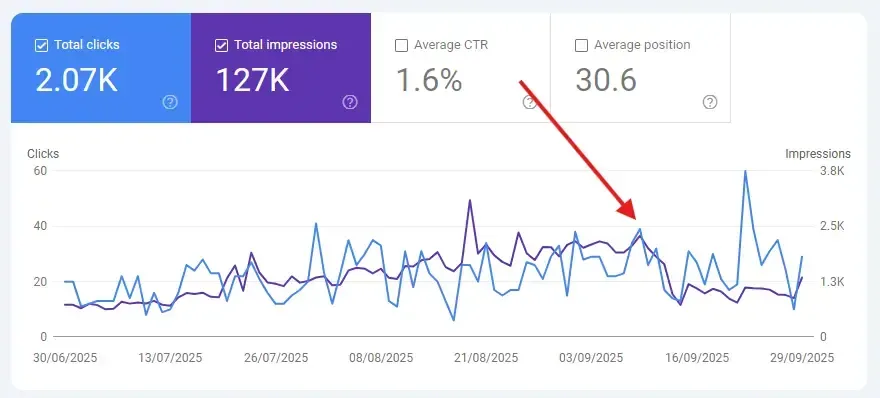The end of fortune cookies? How to adjust to cookie digital marketing
You cannot have accessed the internet without coming across cookies. Most people have heard about them, but not all understand them. Cookies are to digital marketing as oxygen is to humans. They are the life source of search engine marketing and a valuable tool to help businesses generate a healthy profit.
However, the sale of personal data is big business, and cookies are responsible for feeding this unsavoury beast. Searchers do not want their personal data being sold to the highest bidder. They do not want to be spammed or scammed. They want to be able to trust online entities.
To kickstart a more secure online experience for web users, some cookie types are being phased out. Following the suit of Firefox and Safari, Google is phasing out third-party cookies by 2023 on Google Chrome. Good news for internet users, but what does this mean for your digital marketing?
What are internet cookies?
Internet cookies are tiny data files a web server places on the searcher’s device to monitor and enhance the website user experience.
Cookies serve useful and sometimes essential functions on the web. They remember what you have in your basket while you continue browsing a website; they save your information for filling in forms, remember your passwords, and generally make life easier for the user. These are first-party cookies. Not only do they enhance the user experience, but they also allow you to track basic website analytics including session length, referring sites and bounce rates.
Third-party cookies are a different kettle of fish, they are known as the ‘tracking cookies’, and it is these the internet search engines are phasing out. They monitor, track, and collect data:
- Demographics – the name, age and gender of the visitor
- Surfing behaviour – the browsing habits, purchasing history and social media activity of the website user
- Interests – the websites and content they spend time on
This valuable information allows digital marketeers to build accurate user profiles to shape and create successful digital marketing campaigns, generating income through highly targeted ads. Removing access to this key information has the potential to disrupt the efficiency of your business’ digital marketing campaigns.
How to prepare for being third-party cookie free
The good news is you have time to prepare and lay the foundations for continued online marketing success. Loosing third-party cookies is potentially a big deal, but not one that cannot be overcome.
Now is the time to revisit and evaluate your business’ digital marketing strategy. The sooner you address and embrace the changes, the more prepared you will be and experience less financial impact.
Power up existing first-party cookie solutions
Revamp your first-party data models to gain better insights about your existing customers. Build and develop your email list and make use of online surveys, sign-up forms, polls, and newsletters to harvest valuable information to focus your digital marketing.
The benefit of first-party data is that it is accurate, unique to your business and you don’t have to worry about it being taken from you or losing the right to use it. The best website designs are a treasure trove of opportunities to collect customer information.
Exploit the digital marketing tools you do have access to
Facebook advertising is a fantastic way to generate leads. Its power lies in the ability to be specific in who sees your chosen Facebook ad (plus you can choose a different advert for each audience). Facebook’s custom audience enables you to hunker down and segment people who have already engaged with your brand.
If you are not already using Google Ads to promote your products or services, it’s a good time to do so. Even if you don’t wish to commit in the long term, you will be able to collect data to use once the third-party cookies are defunct – make hay while the sun shines! A third-party cookie ban is not going to impact the search giant’s first-party cookie data internet advertising business. Google’s extensive network will continue to collect data and position your ads in front of searchers through contextual advertising.
What is contextual advertising? It’s a form of personalised advertising that places your Google Ads on relevant sites. Google has access to a vast display network, so your ad will be published on relevant websites to match your business. Keywords, the topic, the language used and location play key roles in how Google analyses your ad. For example, if you run a hairdressers and someone nearby reads an article about how to home dye their hair, your Google Ad will show. To gain the most momentum from contextual advertising, your website’s SEO needs to be up to scratch.
Combine digital marketing tactics
There is not one single action you can take to have online business success; it is a combination of several. So, in this respect, it is business as usual with or without third-party cookies. As Digital Presence’s clients can attest, it’s important to look at your online activities holistically to create the best digital marketing strategy:
2. SEO
3. Google Ads
4. Facebook Ads
5. Blog writing
These five core areas are key for sustainable online business growth and should work in partnership to help your business realise its full potential.
Cookies are a twenty-five-year-old technology, and society has progressed in that time. With the digital marketing and online advertising industry placing greater value on user experience, the need for balance between transparency, privacy and profit is real.
If you have all your digital eggs in one virtual basket, it’s time to explore a new way of marketing your business online. The idea of cookie free marketing is daunting, but it is certainly not the end of the road – it’s an exciting time to streamline, adjust and improve your business’s online activities.
If you have all your digital eggs in a virtual basket and want to learn more about how to adapt to cookie free digital marketing contact us at Digital Presence for a free informal chat. We’re a Christchurch digital marketing agency and web design company who helps NZ businesses shine online.












